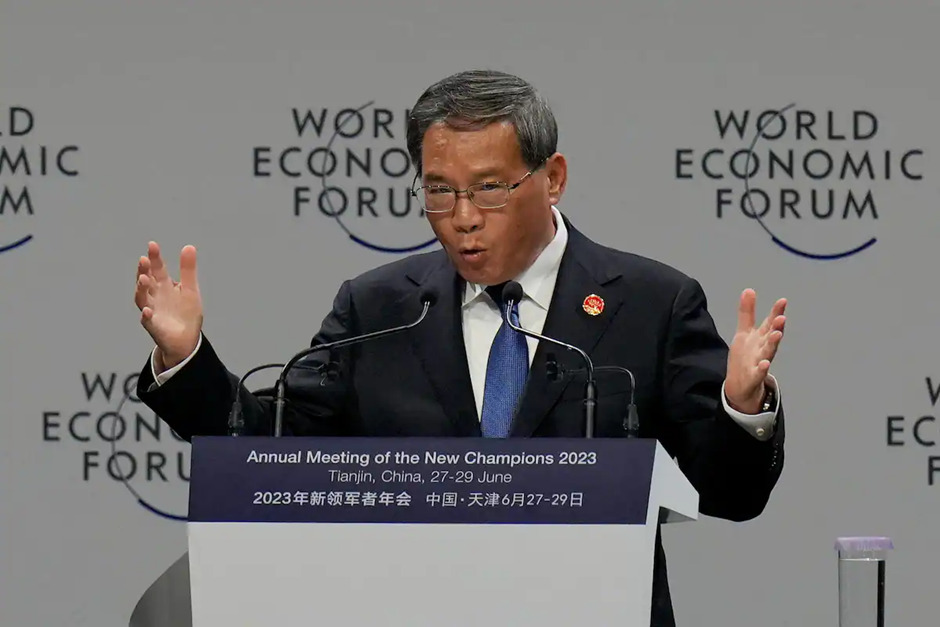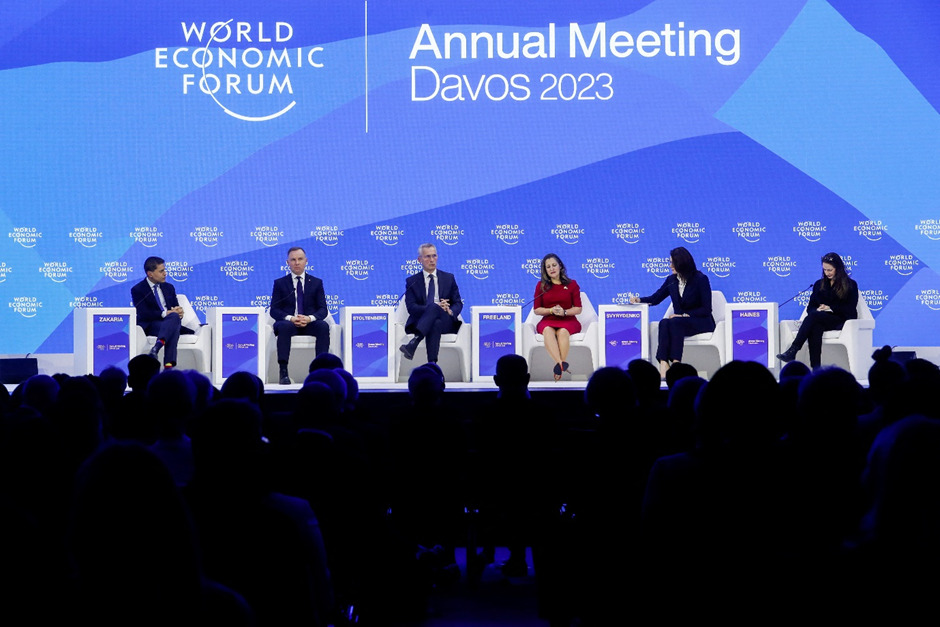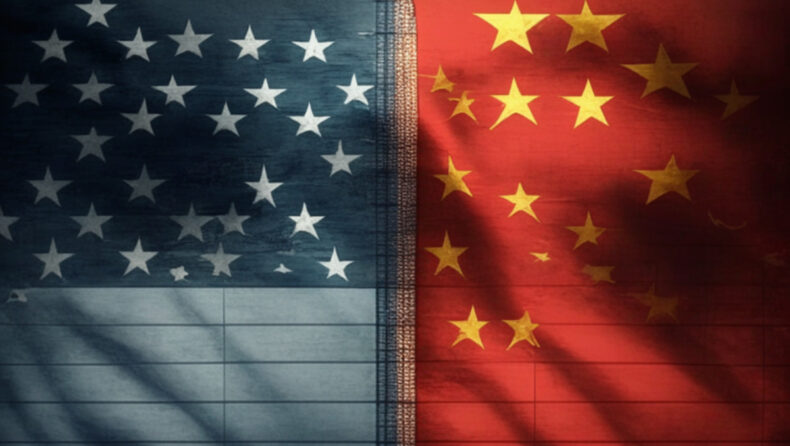TIANJIN, China — Premier Li Qiang of China delivered a powerful speech on Tuesday, denouncing Western nations for fostering division and confrontation. His remarks were made at the opening of the World Economic Forum‘s Annual Meeting of the New Champions in Tianjin, a highly anticipated event also known as the “Summer Davos.” This in-person gathering, the first since the pandemic, provided Li with a platform to showcase China’s robust economy and position it as a global champion of globalization.

Chinese Premier Li Qiang delivering his opening speech for the World Economic Forum “Summer Davos,”
During his address, Li drew a sharp contrast between China and “some people in the West” who, he claimed, have politicized economic matters during a time when global cooperation and exchange are most vital. He expressed concerns about the growing prevalence of invisible barriers constructed by certain individuals, arguing that they are exacerbating global division and fueling confrontations between nations.
Li, a former Chinese Communist Party boss in Shanghai who assumed the position of premier in March, enjoys a close relationship with President Xi Jinping, a highly influential figure in contemporary Chinese politics. The conference coincides with China’s efforts to address economic challenges and navigate increasing skepticism from Western nations, predominantly led by the United States.
The event witnessed the participation of notable figures, including the prime ministers of New Zealand, Vietnam, and Barbados, as well as Ngozi Okonjo-Iweala, the director general of the World Trade Organization. Li expressed deep concern over the ideological prejudice and animosity that have been fueled by certain individuals’ rhetoric in recent years, leading to acts of encirclement and oppression. The World Economic Forum‘s Annual Meeting of the New Champions is set to continue until Thursday, providing a crucial platform for dialogue and exchange of ideas.

Premier’s remark triggered by US President.
The premier’s remarks come in the wake of President Joe Biden‘s recent comment referring to Chinese President Xi Jinping as a dictator, which has received strong criticism from Beijing, labeling it as a provocative statement. This criticism coincides with the collective commitment of the United States and other Group of Seven countries to reduce their exposure to China, aiming to “de-risk” and diversify away from the world’s second-largest economy due to concerns about its perceived distortion of the global economic landscape through its business practices.
The term “de-risk, not decouple” was first coined by European Commission President Ursula von der Leyen in January this year, emphasizing the objective of mitigating potential risks rather than severing ties altogether. Premier Li directly addressed the de-risking strategy, which U.S. officials argue is intended to mitigate potentially hazardous dependencies. Li highlighted that businesses are best equipped to assess industry risks and cautioned against governments overstepping their boundaries and transforming risk into an ideological tool.
U.S. Secretary of State Antony Blinken, during his recent visit to Beijing, clarified that the United States is not seeking to economically contain China but rather aiming to prevent the sale of specific technologies that could be used against American interests, such as in China’s nuclear weapons or hypersonic missile programs. Treasury Secretary Janet L. Yellen, scheduled to visit Beijing next week, echoed Blinken’s stance, emphasizing that decoupling would have disastrous consequences and reaffirming the U.S.’s intention to de-risk the relationship.
China Concerned About Western De-Risking Tactics
China perceives such efforts as part of a broader American plan to impede its rise. The external pressure is particularly concerning for Beijing as it strives to revive its consumer-led economy following three years of restrictive zero-COVID policies. Xi Junyang, a professor at the Shanghai University of Finance and Economics, expressed worries that the U.S. and European countries’ so-called de-risking approach would result in reduced purchases from China and an attempt to relocate manufacturing away from the country, which could have negative implications for China’s economy.
Forecasts for China’s economic growth this year vary, with estimates ranging from 4.4 percent to over 6 percent. Xi Junyang attributes the potential increase to last year’s low growth rate of 3 percent, which fell well below the government target and marked one of the country’s weakest economic performances in decades. S&P Global recently revised its growth forecast for China to 5.2 percent, down from the previous estimate of 5.5 percent.

Participants compete in a race held in Foshan, located in Guangdong province, China, showcasing reduced spending and travel compared to pre-pandemic levels, even during the recent three-day Dragon Boat Festival holiday.
Premier Li Qiang‘s address at the World Economic Forum‘s Annual Meeting of the New Champions highlighted the growing tensions between China and Western nations, particularly the United States, regarding economic policies and global engagement. While Li portrayed China as a champion of globalization, concerns about de-risking and its potential impact on China’s economy loomed large. As the event unfolds, discussions and debates are expected to shape the future of global economic cooperation amidst this backdrop of geopolitical challenges.












